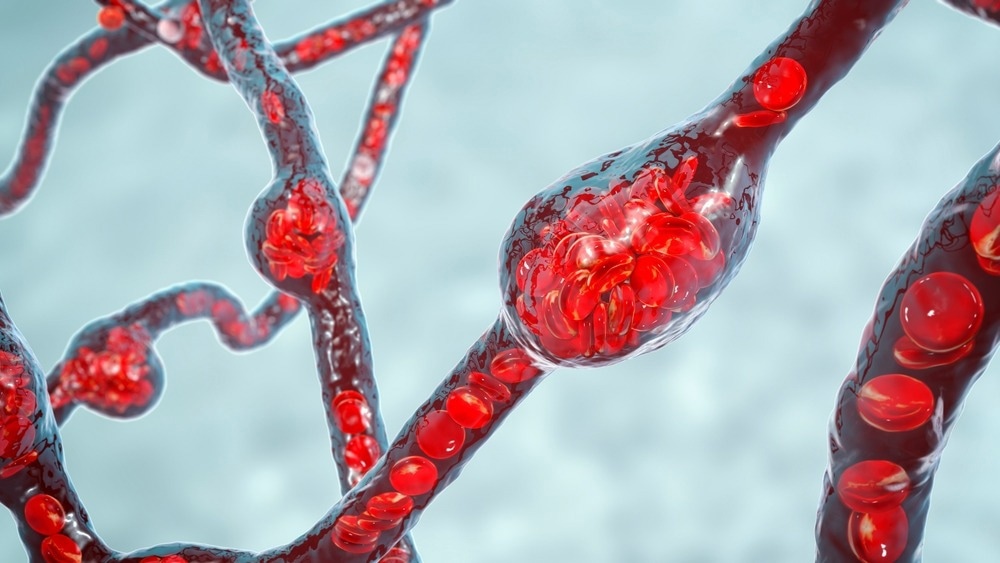In a recent study published in Scientific Reports, researchers evaluated the impact of dietary lysophosphatidylcholine (LPC), comprising eicosapentaenoic acid (EPA) and docosahexaenoic acid (DHA), on retinal function in Alzheimer’s disease (AD)-associated retinopathy.
 Study: Improvement of retinal function in Alzheimer disease-associated retinopathy by dietary lysophosphatidylcholine-EPA/DHA. Image Credit: Kateryna Kon/Shutterstock.com
Study: Improvement of retinal function in Alzheimer disease-associated retinopathy by dietary lysophosphatidylcholine-EPA/DHA. Image Credit: Kateryna Kon/Shutterstock.com
Background
AD commonly results in dementia among older individuals. Memory loss and cognitive impairments are characteristic features of AD; however, visual impairments often occur before them, aiding AD diagnosis and prognosis. The retina and the brain contain high amounts of docosahexaenoic acid. Its deficiency is related to several ocular disorders, such as age-associated macular degeneration, diabetic retinopathy, and retinitis pigmentosa.
The retina and the brain acquire docosahexaenoic acid through the Mfsd2a transporter, which transports serological DHA as LPC. Mfsd2a deficiency results in various retinal and cranial diseases, underpinning the need for DHA supplementation as LPC. The authors of the present study previously reported that docosahexaenoic acid levels in the retina could be efficiently increased in murine adults using EPA- and DHA-containing dietary LPC.
About the study
In the present study, researchers investigated whether increasing retinal DHA levels by supplementing diets with LPC-DHA could improve AD-related retinopathy among 5XFAD murine animals.
The mice were allocated to either of the following three dietary groups: (i) a control-type diet comprising seven percent fat as maize oil; (ii) an LPC diet comprising 2.6 g n-3 fatty acids (EPA and DHA)/g as LPC and seven percent total fat represented by maize oil; and (iii) a triacylglycerol (TAG) diet, comprising 2.6 g n-3 fatty acids (DHA and EPA) per kg as TAG constituting seven percent fat with maize oil.
After two months of the dietary interventions, the team performed electroretinography (ERG) and optical coherence tomography (OCT) measurements. The murine animals were euthanized at three months, six months, nine months, and one year of age to evaluate retinal amyloid β levels using enzyme-linked immunohistochemistry (ELISA) and fatty acid levels using gas chromatography-mass spectrometry (GC-MS).
Results
5XFAD mice demonstrated retinal DHA in significantly lower amounts than the wild-type (WT) mice, and LPC supplementation rapidly normalized the levels of docosahexaenoic acid and increased those of retinal eicosapentaenoic acid by severalfold. In contrast, comparable quantities of EPA and DHA as TAG modestly impacted retinal EPA and DHA.
In the ERG, after two months of intervention, LPC significantly improved the a-wave (representing the photoreceptor function) and the b-wave (representing bipolar cell responses) functions, whereas TAG conferred only modest benefits. Triacylglycerol lowered the levels of insoluble and soluble forms of amyloid β by 17.0% and 11.0%, respectively, and the lysophosphatidylcholine diet reduced the corresponding forms by 49.0% and 39.0%, respectively. The findings indicated that increasing retinal EPA and DHA with dietary LPC at an early age can significantly inhibit amyloid β deposition in the retina.
The study findings indicated that EPA specifically replaced antiretinal antibodies (ARA) from the lipid component of the retina. While the EPA levels increased by 100.0-fold within a year, the EPA/ARA ratio showed a 150.0-fold increase, indicative of reciprocal alterations between the fatty acids. On the contrary, the levels of DHA and the DHA/ARA ratio increased two-fold in retinal cells, indicating no significant impact of DHA on ARA titers. The OCT findings indicated that functional derangements may precede morphological alterations such as cellular atrophy or loss.
Conclusions
Overall, the study findings showed that dietary LPC-EPA/DHA supplementation could significantly improve AD-associated retinopathy by elevating retinal DHA levels. LPC-EPA/DHA also significantly reduced amyloid β levels in the retina. The significant decrease in retinal DHA levels among 5XFAD mice within a month indicated DHA acquisition defects in the prenatal and postnatal periods or increased DHA loss due to elevated oxidative stress levels in AD.
The molecular carrier of dietary EPA determined its accretion and retention by the retinal and brain cells. The LPC-DHA/EPA dosage was equivalent to 280.0 mg of n-3 fatty acids daily for a 70.0-kg human but increased DHA levels by 50.0% and EPA levels by 100-fold in the retina within two months. Thus, LPC-DHA/EPA was much superior to TAG-DHA/EPA in increasing retinal n-3 fatty acid levels and could probably benefit various retinal disorders at doses attainable in clinical settings.
However, further research must investigate the correlations between the DHA enrichment and the amyloid β levels and elucidate the underlying mechanisms of retinopathy prevention by retinal enrichment of DHA and EPA levels.